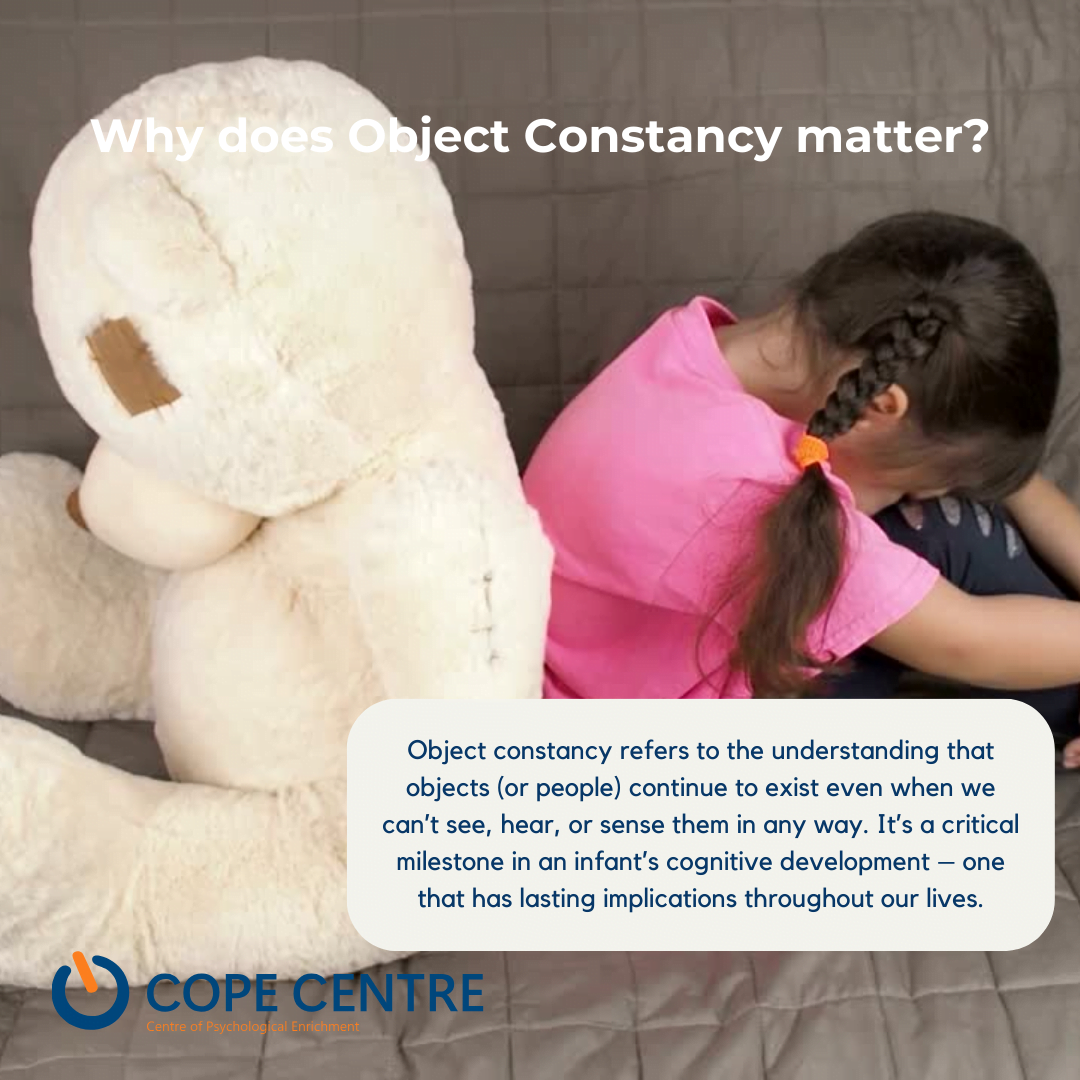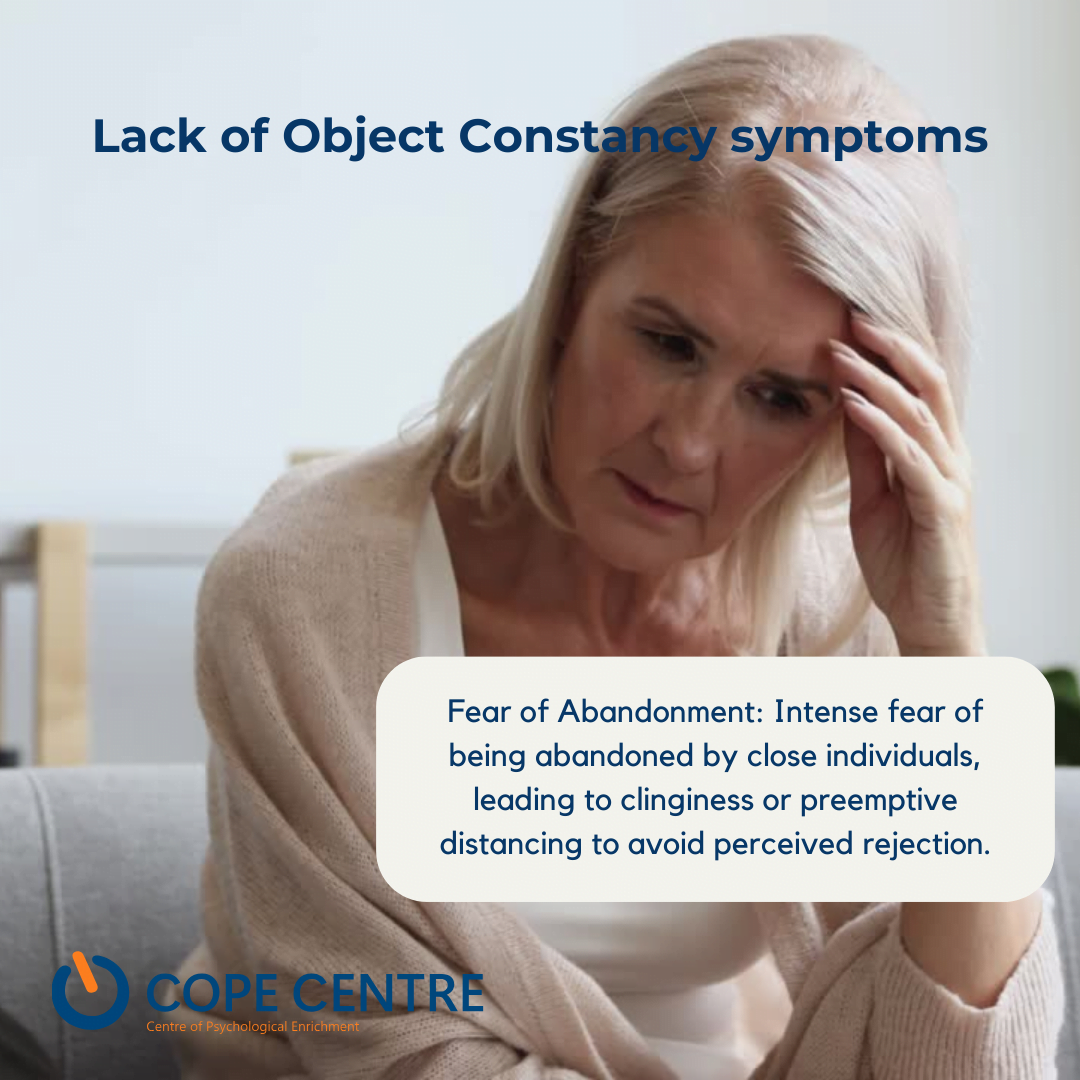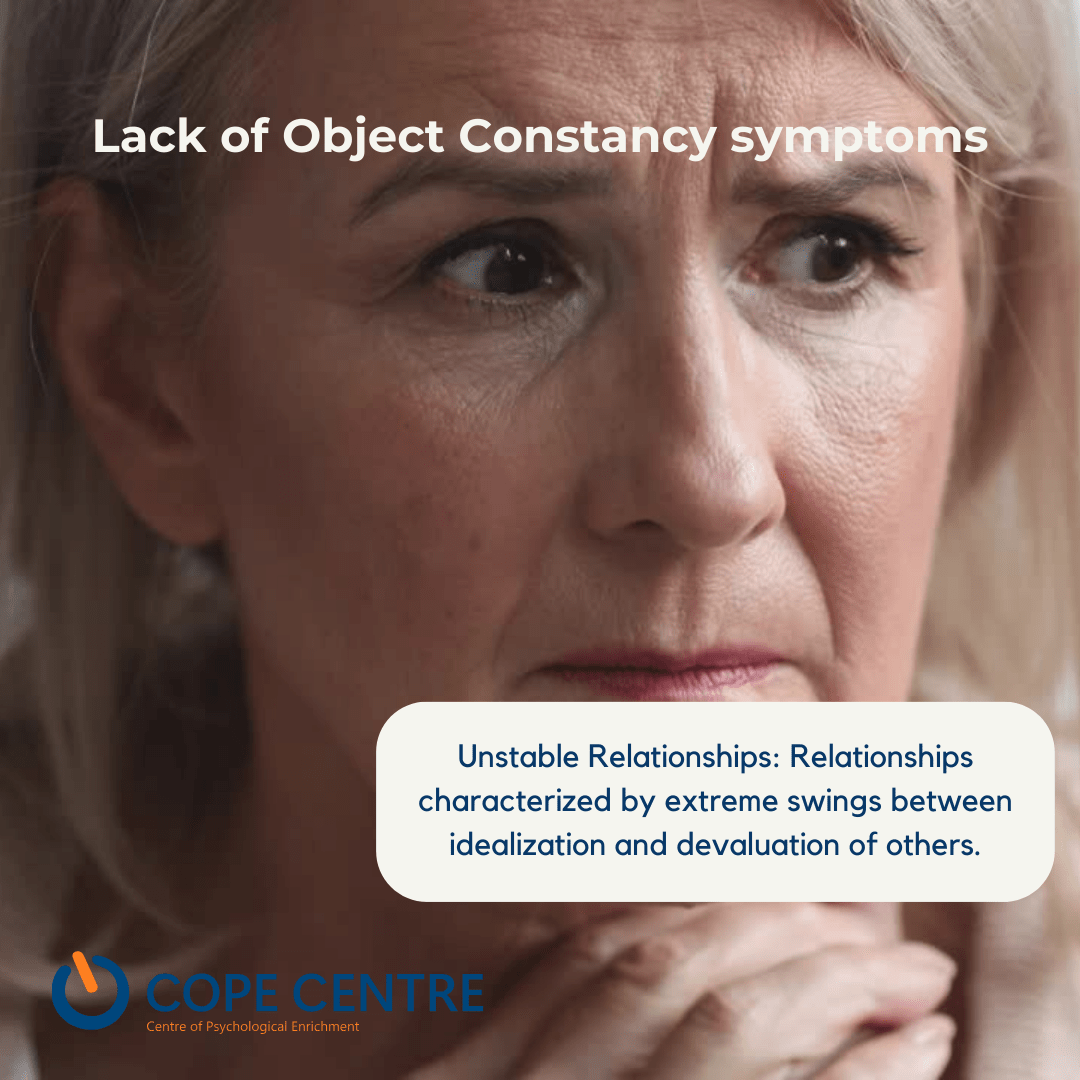Why is Object Constancy so important?
Object constancy is a crucial concept in psychoanalytic theory, marking a significant milestone in emotional development. Coined by psychoanalyst Margaret Mahler, it refers to the ability to maintain an emotional bond with a significant other, even when they are not physically present. This concept is essential for developing stable and secure relationships, as it allows individuals to hold onto a consistent and positive image of their loved ones despite temporary separations or conflicts. Achieving object constancy typically occurs in early childhood and is a foundational aspect of emotional resilience and psychological stability.

Here’s a breakdown of what it means and why it matters:
Definition:
Object constancy is the ability to maintain a positive emotional connection with a loved object (e.g., a caregiver) even when they are not physically present. This means that the love object is not easily replaced or rejected due to absence or temporary dissatisfaction.
Development:
According to Margaret Mahler, object constancy typically begins to develop around the third year of life. It involves the child being able to substitute the physical presence of the mother with a reliable internal image, which remains stable despite instinctual needs or inner discomfort.
Practical Significance:
Emotional Stability: The development of object constancy allows for better tolerance of temporary separations. It provides a foundation for loyalty and trust.
Adult Relationships: In adults, this ability helps maintain emotional connections with significant others, even when they are not present. It ensures that feelings towards these individuals remain stable despite occasional fluctuations.
Analytical Process: For a therapeutic process to be effective, the analyst must exhibit object constancy. This provides a stable emotional climate, fostering the maturation and differentiation of self- and object-representations.


Why It Matters:
Object constancy is fundamental for healthy emotional and relational development. It supports the capacity for enduring relationships and emotional reliability, which are essential for a well-functioning social life.
Lack of object constancy refers to the inability to maintain positive feelings for someone while experiencing negative emotions towards their behavior1. It can lead to difficulties in emotional and relational functioning and may be linked to early attachment disruptions or traumatic experiences. People with poor object constancy may exhibit clingy or overbearing behaviour.
Remember that building trust and communication can help strengthen object constancy in relationships. Seeking professional support, such as speaking to a psychologist, can also be beneficial.
COPE Centre of Psychological Enrichment
Visit us at 2 Lawrence Avenue, West Perth
📞 (08) 6556 6460
📧 [email protected]
Our services About – Cope Centre
Follow us here Facebook

